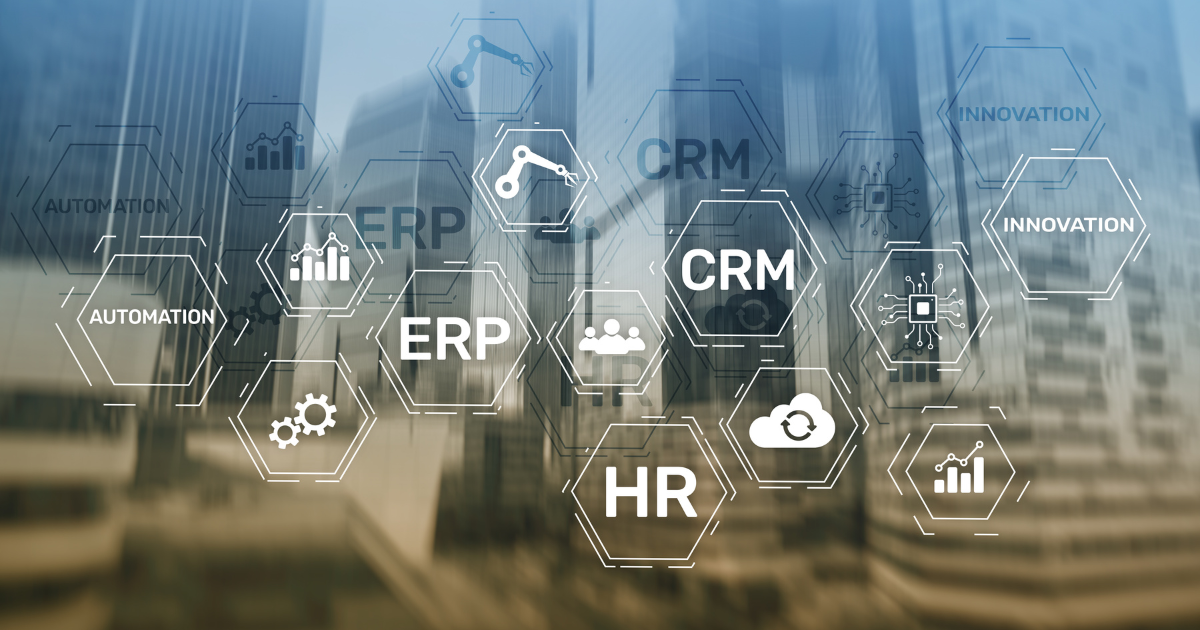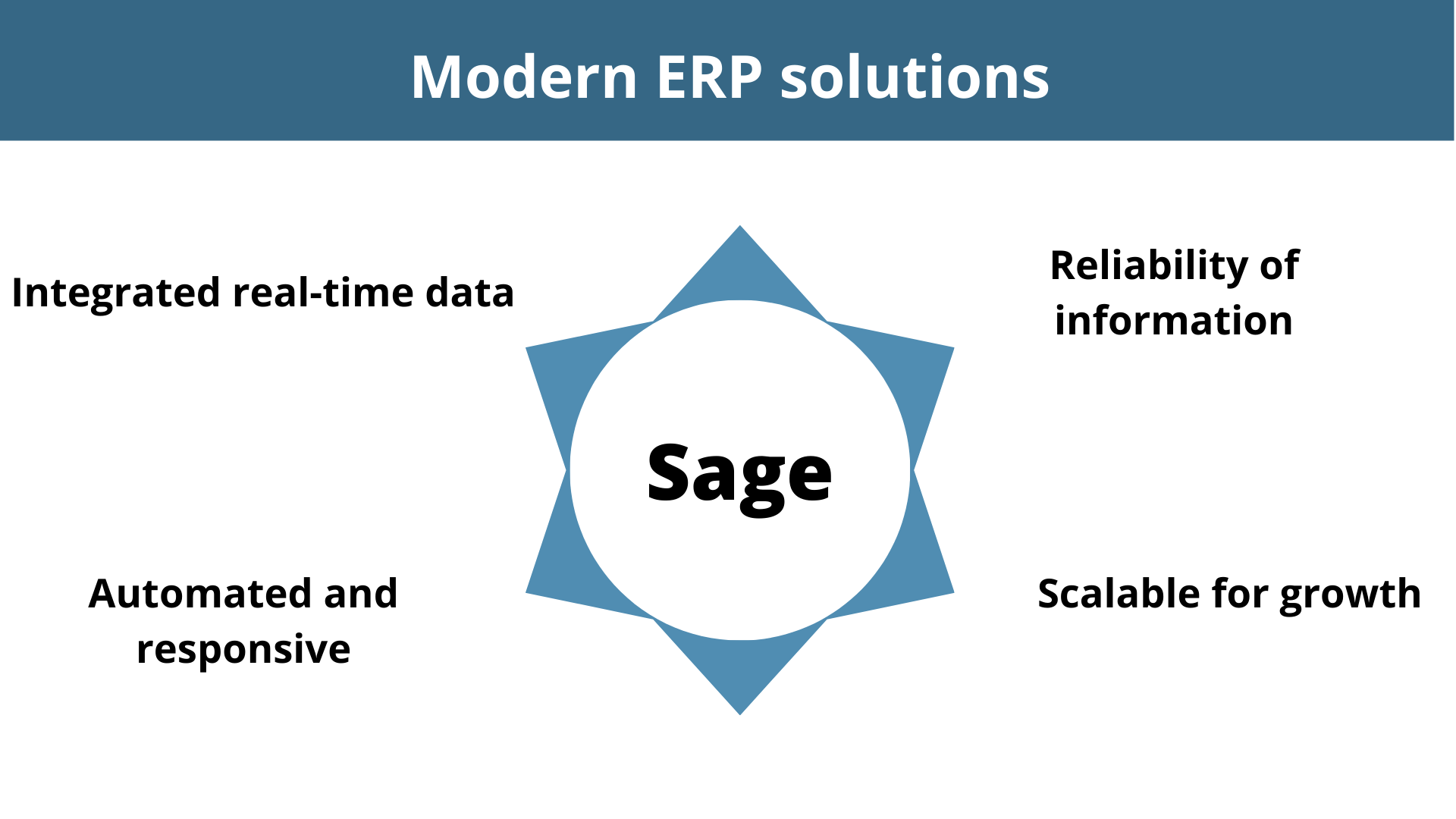Many companies are designing and building ERP systems to manage business activities effectively. One of the reasons companies are implementing ERP systems is to bring all the integrated technologies and data into a central system. But again, it’s a challenge to integrate everything into a single system. So what exactly does the digital transformation for business mean? A study says that companies with the latest digital technologies generate more revenue than their peers.
Digital transformation aims to integrate innovative technologies into business processes to enhance customer experience and increase profit margins. First, setting the stage to transform your business for digital transformation is vital. Implement enterprise resource planning software to upgrade all digital innovation further.
Investing in an advanced and rich ERP will help integrate highly advanced technologies beneficial for the business.
Modern ERP systems are customisable. This feature helps businesses to choose features that apply to their industry. For example, a manufacturing business can opt for features that help them to enhance its business operations and achieve growth. ERP promotes collaboration by integrating all the business functions.
Manufacturing ERP software automates, connects and tracks all business operations efficiently. It optimises all the processes in-depth and identifies the areas that must be rectified. This helps enhance business operations, increasing the business’s productivity.
What is Digital Transformation?
Digital transformation increases productivity and accelerates the growth of the business. Here everything is being rethought, simplified and improved.
ERP and digital transformation are different things. ERP is a software in which digital transformation is launched. ERP will be the platform for businesses to bring that change if they want to achieve digital progression. It is a must to have a software platform to get digital progress where employees and customers will interact easily with new technologies.
The best example of digital transformation is earlier, people had to go to a physical store to purchase the required goods. Now retail stores offer multiple channels to purchase a product. Customers can buy products online, and if they spot any damage or if the product isn’t suitable for them, they can return it and get a refund soon. And customers can easily pay online digitally by using a mobile device. Digital transformation has automated all business processes to help businesses increase profits while keeping customers happy.
4 stages of Digital Transformation
- Clear and organise your data.
- Standardise your technology platform.
- Observe your customer, employee and supplier processes.
- Plan on creating analytics and insights for these processes to monitor all the functions in real-time.
Covid 19 triggered digital transformation
Covid 19 massively impacted businesses across the globe. Many companies were forced to move to digital platforms to save their business from running into loss. All these digital business progressions of business today is due to the pandemic. Companies worldwide have adjusted their strategies to adapt to digital transformation.
Companies require ERP software to get accustomed to digital transformation and progression. ERP helps companies leverage their advantages for digital transformations.
Challenges of ERP digital transformation to avoid
Welcoming digital transformation in ERP can be challenging. You have many factors depending on ERP which have to be looked into. Here let’s explore how to avoid these challenges when bringing a technological change.
Communication
When any change is brought into the company, open room for effective communication. Talk to the concerned employees who have to interact with the system. You will learn about the requirements or what must be done. Based on these insights, proper planning can be done to embrace new technology.
Training
Give ample training to the employees before introducing technology to your ERP system. Employees can effectively work with the system and leverage much value.
Signs to choose Modern ERP system
Modern ERP systems are a boon to businesses today. Companies must give up conventional ERP systems to stay ahead in the cutting-edge competition. But you need to upgrade only if you are experiencing the following signs.
- Change your ERP if the tasks are taking too long to complete.
- If you have to access your mobile to get data.
- You get different and inaccurate data from poorly integrated systems.
- If your company fails to keep up with regulations.
- Access to critical data is not rapid.
- If you are unable to meet customer demands.
- If your support for the current system is becoming expensive.
Also read: How Digital Transformation Is Changing Enterprise Technology?
How cloud ERP paves the way for digital transformation?
Cloud is becoming popular because of its cost-effective solution for businesses. Companies prefer this solution to ease their business processes and get updated technologies to enhance productivity and remove all bottlenecks.
There are three common types of ERP – Cloud, On-premise and hybrid ERP systems. On-premise ERP is managed by IT professionals working in the company. Hybris ERP is the combination of two integrated ERP systems. It is also known as a two-tier ERP system.
What is a cloud ERP solution?
The vendor hosts cloud ERP. It is less expensive compared to the company-owned server. The ERP vendor provides the support, maintenance and functionalities. The fee paid to the vendor is subscription based. The company should pay each time for license updation.
Cloud works with high-speed internet, thus, it is faster. It is a collective of different technologies integrated to function together. The vendor manages the security. The company just has to log in to the ERP system and manage the data.
In addition to all the benefits, it offers many rich features helping businesses to operate efficiently and positively impact customer experience. It can tie together any technologies in a single place and help firms perform their operations smoothly.
Benefits of ERP for digital transformation
ERP can set the stage for digital transformation. Let’s look into some of the benefits of ERP for digital transformation.
Competitive market
Today’s business market is highly competitive. If a business has to stay on top, it must use new technologies. Companies failing to adapt technologies are falling behind. ERP system can analyse and predict consumer market demand. It helps analyse new opportunities and integrate new technologies, trends, etc., which will benefit your company to stand out from the crowd.
Cloud-based solutions
A highly beneficial technology helps employees work from anywhere or from any device. As discussed earlier cloud was a saviour for many companies during the pandemic.
Decision-making
ERP system is an advanced business management solution to collect, analyse and store data in one place. Technologies like business intelligence, predictive analysis, machine learning, and artificial contribute to creating insightful forecasts. Companies can make use of these forecasts to make informed decisions and strategies. Accurate data can be used for multiple business processes like marketing, supply chain, accounting and human resources. This saves much time in making an abrupt decision with the readily available data.
ERP extensions
Integration with new technologies, cloud systems, social media and e-commerce platforms is a game changer for businesses. It can simplify all complex operations by embracing these extensions.
Technology is integrated into the ERP to overcome future obstacles. Plus, as the company grows, these technologies will help the businesses expand.
Increased scalability
ERPs are capable of managing multiple systems or operations simultaneously. With just an upgrade, leverage the benefits of technological advancements in the ERP system. It enhances the digitalisation and automation of the business.
Customer Success
Customer satisfaction is the goal of the business. ERP system streamlines the entire business process. Due to this, organisations will have insights into customer data, inventory management, pricing, and supply chain operations. It is significant to collect, analyse and customer details to structure processes based on market demands.
Sage X3
Sage X3 is an excellent solution for the business if it is struggling with operational challenges. It is a suite of rich features benefitting any business to organise business brilliantly. The main feature of this software is to provide real-time information and data visibility anytime and anywhere. It is an intelligent business management solution to realign your business and achieve success. Implement Sage X3 and begin your journey of growth.
Sage Software Solutions is a leading IT company with an array of advanced ERP Software solutions. Our proprietary products — Sage X3 and Sage 300 will help you cut your operational expenses, improve business productivity, increase operational efficiency, forge robust customer relationships, and strengthen association with vendors, suppliers, and distributors. So, if you are looking to reinforce your business fundamentals and emerge as an industry leader, then please schedule a call with one of our sales representatives.





